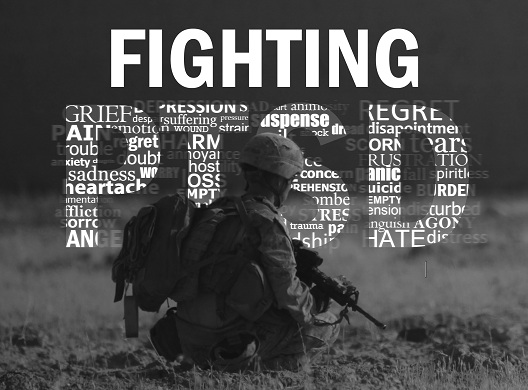PTSD Simply Affects the Military?

"The lack of an association between deployment and suicide risk isn't unexpected," she said. "in A very high degree, these findings emphasize the necessity for people to pay closer focus on what happens when people keep the army."
Company users having a dishonorable discharge were about doubly likely to commit suicide as those that had an honorable separation.
"individuals who really have trouble with a deployment do not go the second time," said Peterson, a retired military psychiatrist who wasn't active in the study. " Early separation from your army is usually a gun for something else."
A total of 31,962 deaths occurred, 041 suicides, including 5, by December 31, 2009.
Suicide rates were similar no matter implementation status. There have been 1,162 suicides among people who implemented and 3,879 among those that did not, addressing suicide rates per 100,000 person-years of 18.86 and 17.78 , respectively.
"Some of the dishonorable discharges may be related to having a mental health disorder and being unable to maintain that conduct in check and breaking the rules, plus some of the early separations might be individuals in distress who accordingly opted out of assistance," said Moutier, who was not active in the study.
Entry to firearms could exacerbate the situation, for those contemplating suicide, Peterson said. " It's a risk factor that sometimes gets ignored, but we've seen once they do not have access to tools they are less inclined to kill themselves."
Possibly that pre-arrangement examinations may screen out those who have mental health issues, making those that use several times a healthier, more resilient group, said Dr. Alan Peterson, a psychologist in the University of Texas Health Science Center in San Antonio who specializes in combat-related post-traumatic stress disorder (PTSD).
It is unrealistic to anticipate former company customers to instantly reintegrate to their former civilian lives, but they could be experiencing serious mental health problems if they're moody or extremely upset or resting or if they're refusing to eat, Moutier said.
Some service users who keep the military early might have had risk factors for destruction such as mood disorders or substance abuse conditions that added to their separation, specially if they'd a dishonorable discharge, said Dr. Christine Moutier, primary medical officer of the American Foundation for Suicide PTSD affects Prevention.
Reger said, suicides among active duty service people have increased before decade, nearly doubling within the Military and the Marines Corps, as the U.S. military has typically experienced lower suicide rates as opposed to civilian population.
Military suicides might be likely after members leave the support than during active duty arrangement, especially if their time in standard is quick, a U.S. study finds.
"It was certainly intuitive because the wars proceeded and suicides went up for folks to believe that implementation was the reason, but our data show that that is too easy; if you consider the total population, deployment isn't related to destruction," said lead author Mark Reger, of Shared Base Lewis-McChord in Tacoma, Washington.
"This is the first-time such a large, complete study has identified a heightened suicide risk among those who have separated from support, particularly if they offered at under four years or had a honorable discharge," said Rajeev Ramchand, a researcher in military mental health insurance and suicide prevention at Rand Corporation who was not involved in the study.
To understand the link between deployment and destruction, Reger and colleagues assessed military documents for a lot more than 3.9 million service users in-active or reserve duty to get the fights in Iraq and Afghanistan at any position from October 7, 2001 to December 31, 2007.
After separating from service compared with 15.12 for many who stayed in standard suicide risk increased using a suicide rate of 26.06. Individuals who left sooner had a greater chance, using a price of 48.04 the type of who spent less than a year in the military.